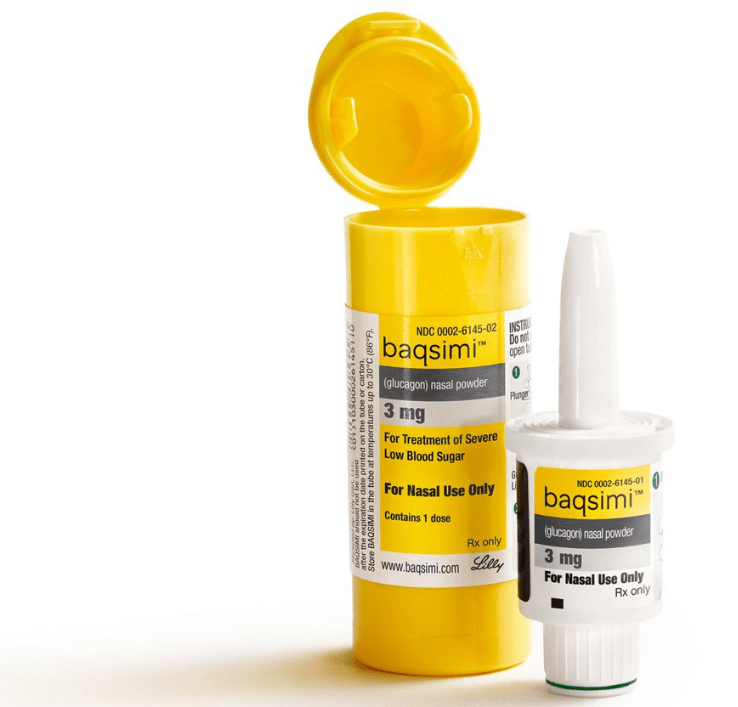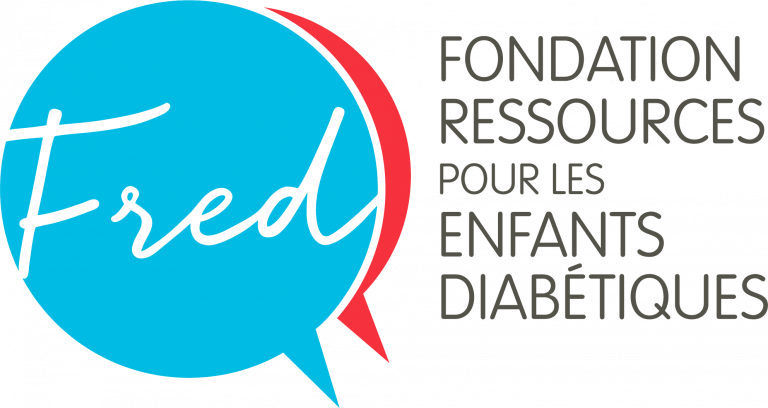Type 1 diabetes - day-to-day management
What is Glucagon?
Home / Type 1 diabetes / What is Glucagon?
Emergency treatment of severe hypoglycemia
GLUCAGON is a medication used for emergency treatment of severe hypoglycemia (loss of consciousness due to low blood sugar) in diabetic patients treated with insulin. If symptoms of severe hypoglycemia occur, a source of quick sugar in some form (candy, orange juice, corn syrup, honey or sugar cubes) should be given immediately, more than once if necessary. If the patient’s condition deteriorates and they lose consciousness, or if they cannot be given an oral source of quick sugar, GLUCAGON should be given as an urgent measure.
The administration of GLUCAGON allows the body to release the blood glucose needed to correct hypoglycemia. GLUCAGON is a natural substance produced by the pancreas. Fast sugar can later be given orally. Consequences related to severe hypoglycemia are then avoided.
There are two types of GLUCAGON:
Nasal GLUCAGON

In Quebec, Glucagon is reimbursed by the Régie de l’assurance maladie du Québec (RAMQ)
GLUCAGON injection
Surroundings
It is important to inform the family and friends of a child with diabetes about the symptoms of diabetes and hypoglycemia, but also about how the different types of GLUCAGON work, to avoid severe hypoglycemia.
Patients who are unable to take sugar orally or who are unconscious should be given a GLUCAGON injection or an intravenous glucose injection at a medical facility. The physician should be notified immediately of any severe hypoglycemia.
GLUCAGON is an emergency drug and should be used in an emergency. Individuals who have regular contact with a diabetic patient should become familiar with the proper use of this medication before an emergency occurs.
Contraindications
Certain conditions may contraindicate the use of BAQSIMI and GLUCAGON:
- Individuals with a known hypersensitivity to GLUCAGON, or to any ingredient in the formulation or container;
- People who have a pheochromocytoma;
- People with insulinoma.
Use of GLUCAGON with alcohol*
When we consume alcohol, our liver works hard to eliminate it. Excessive alcohol consumption at a party or chronic alcoholism can have an impact on the effectiveness of GLUCAGON, regardless of its form. Alcohol will prevent, in part or totally, the hepatic gluconeogenesis from acting. The latter is found in our liver. Hepatic gluconeogenesis is essential to raise the blood sugar level. It is GLUCAGON that will release it. Therefore, BAQSIMI and Glucagon may be less, or not effective in case of excessive or chronic alcohol ingestion. GLUCAGON should still be administered in cases of severe hypoglycemia if a person has consumed alcohol, even if its effectiveness is compromised.
*It is important to discuss the effects of alcohol with a young person with diabetes.
Insurance coverage
In Quebec, BAQSIMI nasal GLUCAGON, as well as the injectable GLUCAGONs GlucaGen, GlucaGen hypokit, and Glucagon, are covered by the Régie de l’assurance maladie du Québec (RAMQ). To obtain one or more GLUCAGON devices, simply ask your endocrinologist for a prescription. The different GLUCAGON devices are available in pharmacies.
Sources
BAQSIMI, s.d., « Comment agit-il ? »
CISION, Février 2022, « BAQSIMI (GLUCAGON nasal) traitement de secours en cas d’hypoglycémie sévère, maintenant couvert au Québec »
Lilly, septembre 2021, « BAQSIMI – Poudre pour administration nasale de GLUCAGON »
Lilly, juillet 2012, « GLUCAGON — Glucagon pour injection, source ADNr »
Diabète Québec, juin 2014, « Le GLUCAGON, une médication hyperglycémiante »
Régie de l’assurance maladie du Québec, mars 2022, « Liste des médicaments »



